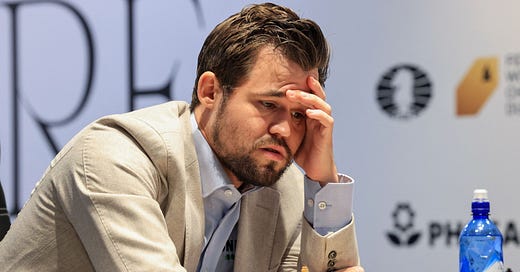Whereof we cannot speak, thereof we must remain silent.
Ludwig Wittgenstein, Tractatus Logico-Philosophicus
One of the ironies of the philosophical tradition comes in the form of a laconic sentence the brings Ludwig Wittgenstein’s philosophical missive the Tractatus Logico-Philosophicus to a conclusion. As far as philosophy books go, the Tractatus is a short one, weighing in at less than a hundred pages of text in most English language editions. After trying to identify the relationship between language and reality, and ultimately, to define the limits of science, Wittgenstein brought the work to a close with the immortal line “Whereof we cannot speak, thereof we must remain silent.”
For Wittgenstein, since propositions merely express facts about the world, propositions in themselves are entirely devoid of value. The facts are just the facts. Everything else—everything that might render the world meaningful—must reside elsewhere. A properly logical language, Wittgenstein held, deals only with what is true. Aesthetic judgments about what is beautiful and ethical judgments about what is good cannot even be expressed within the logical language, since they transcend what can be pictured in thought. They aren’t facts.
Of course, when it comes to chess, I have clearly ignored the Austrian philosopher’s sage advice. [This is the point where you assure me that my newsletter is very much worthwhile and I brush the compliment off nonchalantly] But the deeper ideas contained within this almost-catchword line remain pertinent in the present day. There are some real things that simply exist, so the logic goes, and then there are some subjective things which are dependent on us for how we fall on them.
You could say that this crude objective/subjective distinction falls in chess too. Obviously, you have the game itself; this is non-negotiable. Wittgenstein would take the notation as given: “Everything that is the case”. But then how about the aesthetic appreciation of this “Everything that is the case”? What one person finds beautiful, another person might not?

In this instance, for Wittgenstein, thereof we must remain silent.
There is a spoiler alert here. Wittgenstein basically disagreed with himself about the premises and conclusions of the Tractatus. He would later write a work called Philosophical Fragments which propounded an entirely novel philosophy of language. But that’s a whole other story.
When I was watching Game 2 of the World Chess Championship, I had these sorts of ideas running around my head. Magnus Carlsen had come into the game with the white pieces and flung himself into a Catalan opening. This was more of the same from Game 1 Carlsen: sharpness, novelties, looking for lesser-spotted lines well outside the realms of the common or garden lines.
Move 8. Knight to e5. Ahead of schedule. Surely we’ve missed 8. a4? Is there method to this madness? And where do we head when we can concrete answers to these sorts of questions? To the engines.
It’s a funny thing, engine evaluation. On the one hand, it seems totally intuitive. If the needle swings towards white, then white is better. But if the needle swings towards black, then black is better. Right?
“Ah!” but the pundits say. “You have to remember that two human beings are playing these positions. You can’t expect them to possess the spotless mind of Stockfish….”

We find ourselves, then, in a strange hinterland. Between the objectivity of “my computer at depth 40 says this position looks good for white” and the subjectivity of “what depth does the average human operate at?” The things whereof we should remain silent are starting to shimmer and merge with the “things that are the case”.
Where did that leave us in Game 2? Well, for some viewers, Carlsen was taking Nepomniachtchi down the garden path in a bid to get him “out of book”. Fabiano Caruana claimed that, in preparation, he is “attracted to things where the evaluation is going against me, because that it is less likely that my opponent has checked it. When you see that when the most natural move is a mistake, then it is something!"

But how would you distinguish between a player being prepared and a player being underprepared? Whereof we cannot speak, thereof we must remain silent?
Was Carlsen losing a grip in Game 2? Or was he simply trying to coax Nepomniachtchi into a potentially winning endgame for white? The Russian’s knight went for a walk before settling proudly on c3. The needle wavered.
Was there a man dismayed?
Not though M. Carlsen knew
Someone had blundered.

Much like at Balaclava, a sacrifice was made. Carlsen was surprised at how much material he gave up. But for us watchers, we were kept in the lurch. But then as soon as an advantage had been gained, it was given back. Nepomniachtchi pushed his c-pawn and, before we knew it, a parity had been restored.
For us outside the goldfish bowl, with our engines and our pundits and our hot takes, the situation moved backwards and forwards as skittishly as the engine evaluations. In the end, our hearts, like the computers, settled back down to 0.00 and the draw played out.
When is a draw not a draw? Was this a draw? We’re two games in now and you could read it either way. Has Carlsen come out to try to unnerve Nepomniachtchi and failed twice? Is it advantage Nepo? Or was today’s draw indicative that the Russian will too quickly fold over and take the draw when it comes within his grasp? Does the Norwegian not have the tools to grind Nepomniachtchi down? Or will it just take one game to bring the World Championship trophy back to Norway?
The score is 1-1. Who would hazard to predict the direction of the rest of the game?
Thereof should we remain silent? Fuck that! There is no easy objectivity. Even the engines can’t decide. Everything is up for debate. Whereof I cannot speak, I’m sure as hell going to keep talking.





